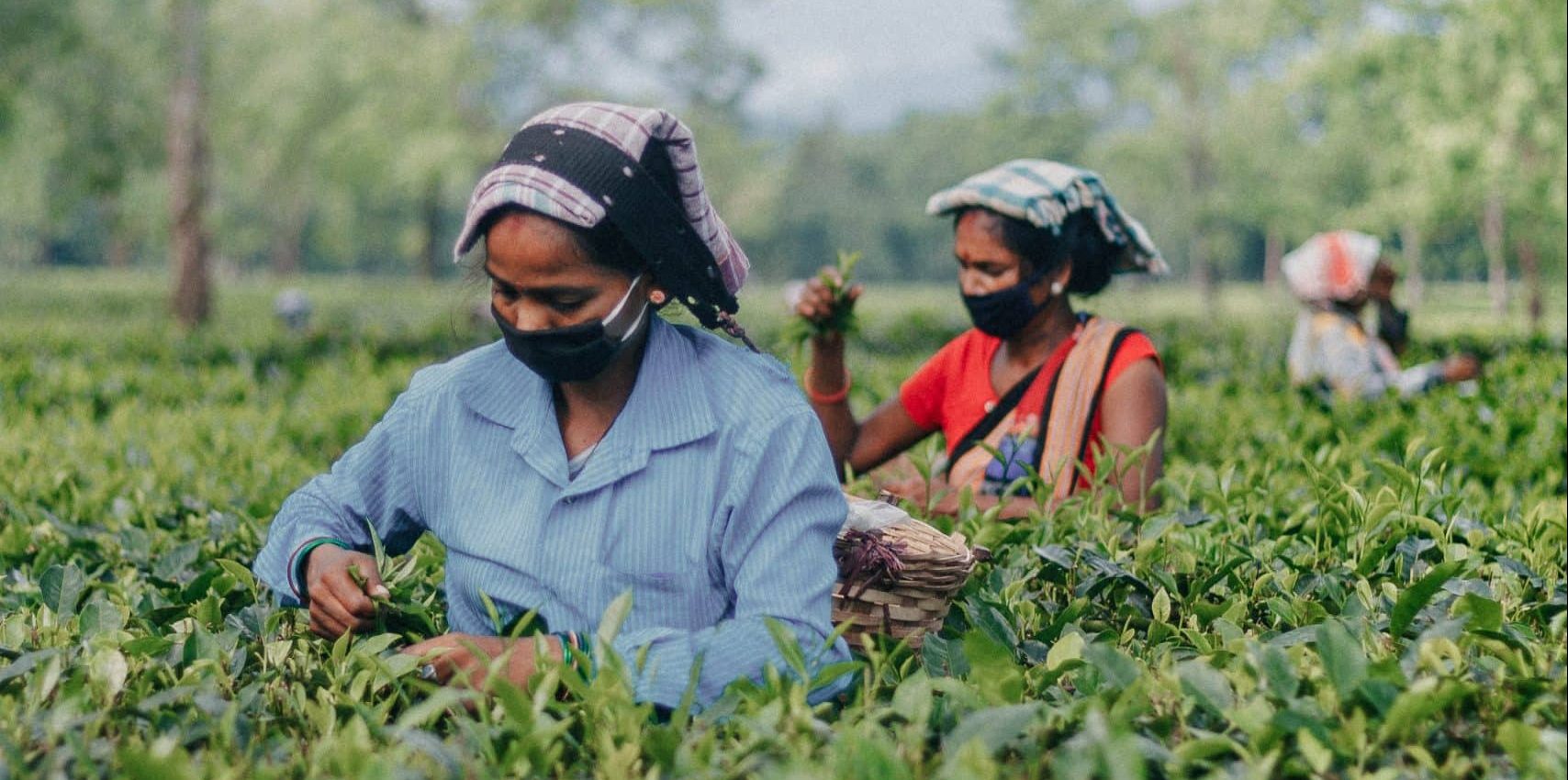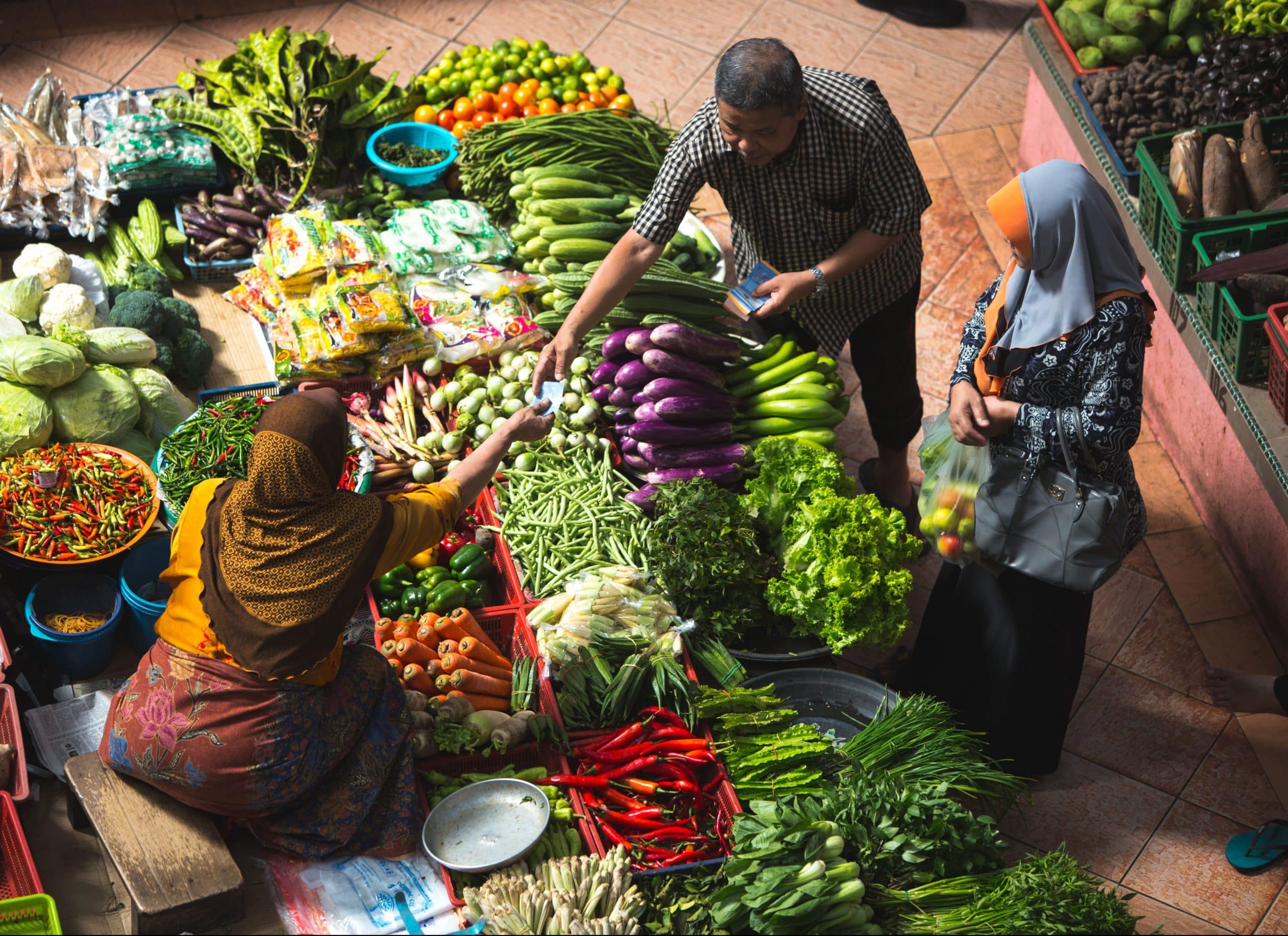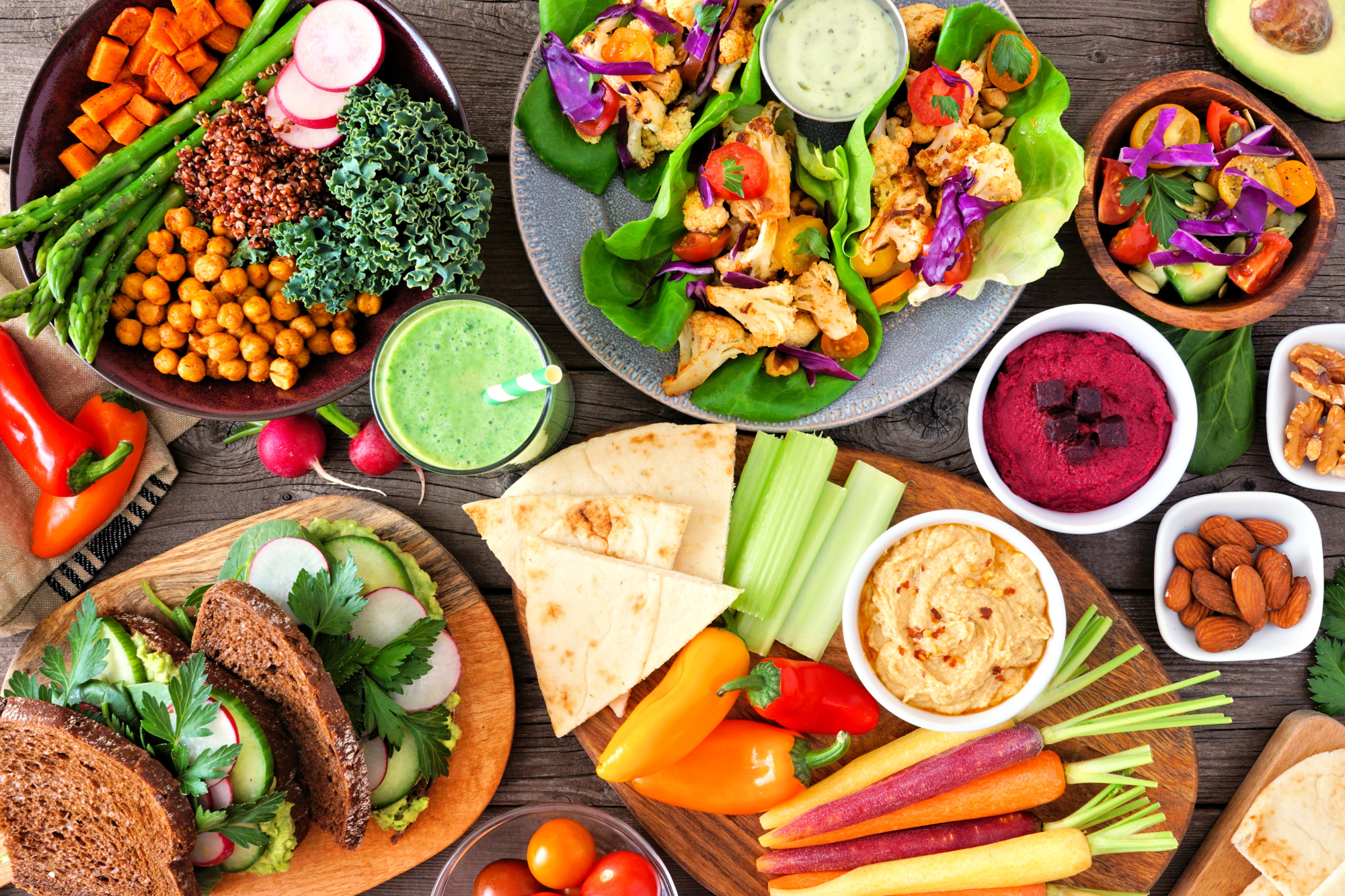Every year on 20 February, the United Nations celebrates World Day of Social Justice as an acknowledgement of the need to build a more just and inclusive world. In that light, we explore four reasons why adopting a plant-based diet can be a powerful opportunity to promote justice in agriculture and beyond.
1. Plant-based diets contribute to environmental justice
Those who are socially, economically, politically, or otherwise marginalised are disproportionately affected by climate change and environmental degradation, which is exacerbated by animal agriculture.1 For example, vulnerable communities are often located closest to major sources of pollution, such as factory farms. A famous example is the US state of North Carolina, which is known for its high density of hog farms. Since the 1990s, studies have shown that these large-scale feeding operations are far more concentrated in areas with a high population of Black people, Indigenous people, and People of Colour.2 3 Producing a staggering amount of waste, hog farms are significant polluters of adjacent air, water, and soil, and frequently put the health of minority communities at risk.4
By shifting to more plant-based diets and food systems, we can mitigate these dire consequences. Animal-based foods are responsible for about 20% of global greenhouse gas emissions,5 while livestock production is responsible for around 32% of global anthropogenic methane emissions, a gas far more potent than CO2.6 Plant-based foods, on the other hand, have a much smaller environmental impact.7 It is estimated that moving to more plant-based diets could reduce agricultural emissions in high-income countries by 61%.8 Going plant-based therefore not only helps the planet, but also those who suffer from its destruction.
More plants. Less meat. Take the 30-Day Challenge!
Join the ProVeg Veggie Challenge and try eating more plant-based for 30 days. It’s better for your health, better for the planet and better for animals. Get a healthy start with your personal Challenge. We’ll help you along the way with free tips, recipes and support.
2. Plant-based diets reduce deforestation
Animal agriculture not only significantly contributes to greenhouse gas emissions, it is also a major driver of deforestation, which often impacts negatively on local communities. According to the UN Food and Agriculture Organization, agricultural expansion drove almost 90% of global deforestation between 2000 and 2018.9 Much of this can be attributed to livestock farming, which uses around 83% of global agricultural land, an area as big as North and South America combined.10 In fact, nearly 70% of cleared land in the Amazon, the largest remaining tropical rainforest in the world, is used for cattle pasturing.11
In addition to the tremendous damage that deforestation is causing to biodiversity, it also has dire consequences for the local, often Indigenous, communities who rely on forests for their livelihoods. For these people, the destruction of forests and their subsequent forced displacement deprives them not only of vital food and materials, but also of their land, their cultural heritage, and their traditions. For example, the Gran Chaco forest, the second-largest forest in South America, is home to around 35 indigenous communities, many of which still follow their traditional hunter-gatherer lifestyles. Deforestation for agricultural expansion has deprived many of them of their homes and exacerbated their vulnerability.12
3. Plant-based diets minimise zoonoses and antibiotic resistance
Deforestation is also at the heart of a major public health threat linked to industrialised animal agriculture: zoonotic diseases. A zoonosis is an infectious disease that has been transmitted from non-human animals to humans. Well-known examples of such diseases are HIV and swine flu, and an increasing amount of evidence suggests that the COVID-19 virus also originated in non-human animals. It is estimated that about 75% of newly emerging infectious diseases and 60% of infectious diseases in humans are zoonoses, causing around 2.5 billion cases of illness and 2.7 million deaths each year.13
The devastating consequences of such disease outbreaks are often borne disproportionately by marginalised communities. A 2020 study has shown that in the UK, almost all ethnic minorities were at higher risk of dying from COVID-19 than the white British population.14 One of the reasons for this is that minority groups were much more likely to work in the health and social-care sectors and already experienced higher prevalence of negative health conditions. Similar findings have been reported for other countries, such as the US.15
Intensive animal agriculture is a major driver of zoonotic risk. First, as discussed above, livestock production is a leading cause of global deforestation. This significantly reduces wild animals’ natural habitat, driving them into urban areas, where close contact with humans increases the risk of cross-species disease transmission. Secondly, intensive livestock farming presents a natural breeding ground for the emergence of infectious diseases: stock densities are often high, farming conditions unhygienic, and animals’ immune system severely weakened due to stress and injuries.16 Lastly, this situation is aggravated by increasing rates of antimicrobial resistance, of which animal agriculture is a major driver. More than 70% of global antibiotics is used on animals in intensive farming.17 By consuming animal-based products, we habituate our bodies to these medicines and risk becoming immune to their protective effects when we really need them.
4. Plant-based diets avoid harmful slaughterhouse working conditions
Lastly, plant-based diets also avoid the harmful side effects of the meat-packing industry. The slaughter and processing of non-human animals is an inevitable consequence of consuming meat-based products. In addition to the suffering of non-human animals, this highly industrialised process also takes a heavy toll on the slaughterhouse workers themselves.
Indeed, meat processing not only involves hard, repetitive physical labour that can cause serious injuries, but it also imposes severe psychological strains. While the health effects of meat packing continue to remain underexplored, mounting evidence suggests a higher prevalence of mental-health issues among slaughterhouse workers. A 2021 systematic review of the literature found significant evidence for higher rates of depression, anxiety, and psychosis, with workers reporting high levels of stress and symptoms of trauma.18
What’s more, in many countries, abattoir workers are more likely to belong to socio-economic and racial minority groups, which makes them even more vulnerable to the dangers of the zoonotic diseases described above. Indeed, around the world, slaughterhouses that continued operating during the COVID-19 pandemic often turned into infectious hotspots, putting workers and communities at risk.19
Plant-rich diets contribute to global food security
With the growing impact of climate change and environmental degradation on food production, as well as risks related to public health, pandemics, and geopolitical shifts, moving towards a more plant-based diet in order to protect global food security has never been so relevant.
Plant-based diets are far from ethically and environmentally perfect and we need to remember that the growing of fruits, vegetables, nuts and legumes can also involve seriously unethical practices. However, by reducing our consumption of animal-based products, we can reduce and avoid many of the pernicious social injustices that are an essential part of industrialised animal agriculture. At the end of the day, plant-based diets represent a powerful opportunity to build a world that is healthier, fairer, and more sustainable.
Here are three things you can do to support our mission of reducing the global consumption of animals by 50% by 2040:
References
- IPCC (2014): Summary for policymakers. In: Climate Change 2014: Impacts, Adaptation, and Vulnerability. Part A: Global and Sectoral Aspects. Contribution of Working Group II to the Fifth Assessment Report of the Intergovernmental Panel on Climate Change [Field, C.B., V.R. Barros, D.J. Dokken, K.J. Mach, M.D. Mastrandrea, T.E. Bilir, M. Chatterjee, K.L. Ebi, Y.O. Estrada, R.C. Genova, B. Girma, E.S. Kissel, A.N. Levy, S. MacCracken, P.R. Mastrandrea, and L.L. White (eds.)]. Cambridge University Press, Cambridge, United Kingdom and New York, NY, USA, pp. 1-32.
- Wing, S., G. Grant, M. Green & C. Stewart (1996): Community based collaboration for environmental justice: South-East Halifax environmental reawakening. Environment and Urbanisation, 8(2), 129 – 140.;
- United States Environmental Protection Agency (2017): Letter of concern to William G. Ross Jr. Available at: https://www.epa.gov/sites/default/files/2018-05/documents/letter_of_concern_to_william_g_ross_nc_deq_re_admin_complaint_11r-14-r4_.pdf.
- Mirabelli, M. C., S. Wing, S. W. Marshall, et al. (2006): Race, Poverty, and Potential Exposure of Middle-School Students to Air Emissions from Confined Swine Feeding Operations. Environmental Health Perspectives 114(4), 591–596.
- Xu, X., P. Sharma, S. Shu, et al. (2021): Global greenhouse gas emissions from animal-based foods are twice those of plant-based foods. Nature Food 2(9), 724–732.
- United Nations Environment Programme and Climate and Clean Air Coalition (2021): Global Methane Assessment: Benefits and Costs of Mitigating Methane Emissions. Nairobi: United Nations Environment Programme.
- Xu, X., P. Sharma, S. Shu, et al. (2021): Global greenhouse gas emissions from animal-based foods are twice those of plant-based foods. Nature Food 2(9), 724–732.
- Sun, Z., L. Scherer, A. Tukker, et al. (2022): Dietary change in high-income nations alone can lead to substantial double climate dividend. Nature Food 3(1), 29–37. doi:10.1038/s43016-021-00431-5
- FAO (2021): COP26: Agricultural expansion drives almost 90 percent of global deforestation. Available at: https://www.fao.org/newsroom/detail/cop26-agricultural-expansion-drives-almost-90-percent-of-global-deforestation/en. Accessed on 09.02.2023.
- Poore, J. & T. Nemecek (2018): Reducing food’s environmental impacts through producers and consumers. Science 360(6392), 987–992. doi:10.1126/science.aaq0216
- Cerri, C. E. P., C. C. Cerri, S. M. F. Maia, et al. (2018): Reducing Amazon Deforestation through Agricultural Intensification in the Cerrado for Advancing Food Security and Mitigating Climate Change. Sustainability 10(4), 989. doi:10.3390/su10040989
- Ceurstemont, S. (2022): Deforestation cuts through community as well as biodiversity. Available at https://ec.europa.eu/research-and-innovation/en/horizon-magazine/deforestation-cuts-through-community-well-biodiversity. Accessed 10.02.2023.
- Centers for Disease Control and Prevention [CDC] (2019): Prioritizing and Preventing Deadly Zoonotic Diseases. CDC – Centers for Disease Control and Prevention. Available at https://www.cdc.gov/globalhealth/healthprotection/fieldupdates/winter-2017/prevent-zoonotic-diseases.html. Accessed 10. 02. 2023.
- Platt, L. & R. Warwick (2020): Are some ethnic groups more vulnerable to Covid-19 than others? IFS Deaton Review, The Institute for Fiscal Studies.
- CDC (2022): Risk for COVID-19 Infection, Hospitalization, and Death by Race/Ethnicity. Available at https://www.cdc.gov/coronavirus/2019-ncov/covid-data/investigations-discovery/hospitalization-death-by-race-ethnicity.html. Accessed 15.02.2023.
- Brozek, W. & C. Falkenberg (2021): Industrial Animal Farming and Zoonotic Risk: COVID-19 as a Gateway to Sustainable Change? A Scoping Study. Sustainability, 13(16), https://doi.org/10.3390/su13169251.
- Ritchie, H. (2017): How do we reduce antibiotic resistance from livestock? Our World in Data. Available at https://ourworldindata.org/antibiotic-resistance-from-livestock. Accessed: 10.02.2023
- Slade, J. & E. Alleyne (2021): The Psychological Impact of Slaughterhouse Employment: A Systematic Literature Review. Trauma, Violence, & Abuse, 0(0).
- van der Zee, B., T. Levitt & E. McSweeney (2020): ‘Chaotic and crazy’: meat plants around the world struggle with virus outbreaks. The Guardian, 11 May. Available at: https://www.theguardian.com/environment/2020/may/11/chaotic-and-crazy-meat-plants-around-the-world-struggle-with-virus-outbreaks. Accessed 10.02.2023.











